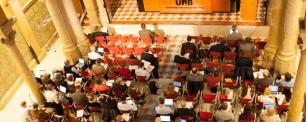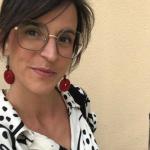The VII Geo European Projects Workshop organized by CREAF and the EC Concludes
More than 175 experts in earth observation from all over the world have gathered at the VII Geo European Projects Workshop, organized by the European Commission and the CREAF, celebrated on the 15th and 16th of April at the “Casa de la Convalascència” of the Autonomous University of Barcelona.
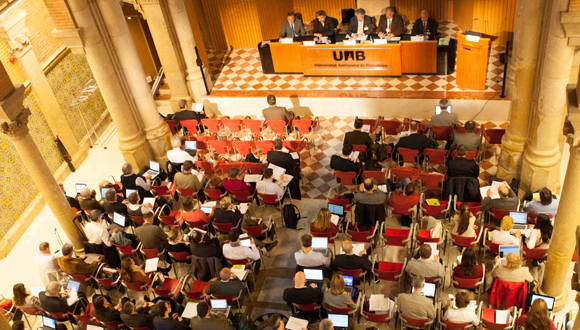
The city of Barcelona has been the headquarters of the VII GEO European Projects Workshop, organized by the European Commission and CREAF on 15th and 16th of April at the “Casa de la Convalascència” of the Autonomous University of Barcelona.
The annual convention has been prepared with the participation of more than 175 national and international experts in earth observation who have scientific projects in common that contribute to the improvement of various aspects of the planet as well as their impact on society: environmental health, energy, meteorology, water management, weather, ecosystems, agriculture, biodiversity and the prediction and reduction of the consequences of natural disasters.
The event was inaugurated on the 15th of April by Andrea Tilche, head of the Environmental Technology Unit of the European Commission; Jordi Mas, head of the Office of International Relations, University and Research Department of Economics and Knowledge of the Generalitat de Catalunya; Fernando Belda, Director of Production and Infrastructures of the State Agency of Meteorology; Xavier Pons, Professor at the Autonomous University of Barcelona; and Javier Retana, Director of the CREAF.
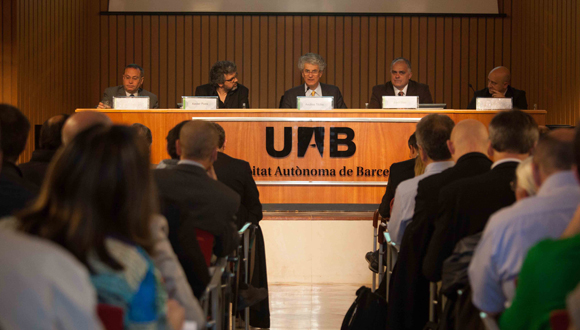
During the conference, a large number of earth observation projects funded by the 7th Framework Program of the European Commission, which supports research, education and innovation of excellence at a European level, were presented. Afterwards, representatives of the government, universities, research centers and companies took the stage. The European Commission praised the current initiatives and recognized the growth potential of the sector in our country.
The funding of earth observation research is the contribution of the European Commission towards the construction and improvement of Global Earth Observation System of Systems (GEOSS). This has the intention to achieve the exchange of environmental information maps without border and at minimum cost. More than 50 diverse initiatives in 3 parallel sessions were presented during the conference. Some examples are:
- The AGRICAB project, which aims to develop a framework in order to improve the ability of earth observation to support of agriculture and forest management in Africa.
- The FUTUREVOLC project, which contributes to a long-term experiment monitoring the geologically active regions of Europe that are prone to natural disasters.
- The MEDINA project, which aims to improve local capacity to implement policies and protocols, is intended to maintain or improve the quality of the coastal ecosystems of North Africa.
- The BalkanGEONet project, whose main objective is to identify and coordinate earth observation activities in the Balkans region and pave the way for the future inclusion of all Balkan countries to GEO.
- The GeoViQua project, coordinated by CREAF, contributing by giving tools to visualize data quality indicators included in GEOSS.
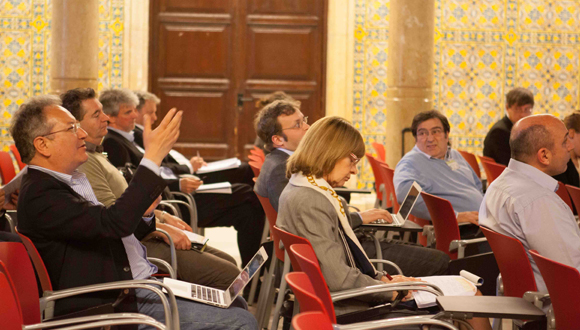
The GEOSS also benefits from Group on Earth Observations Biodiversity Observation Network (GEOBON), initiatives for monitoring and observing oceans (Blue Planet Initiative), the GEO Global Agricultural Monitoring (GEOGLAM), a system of global observation of deposition fluxes of mercury (GMOS), a network of global forest observations (GFOI), as well as a system of observation and analysis of carbon (GEO Carbon).
All of these networks were represented at the conference. In order to position itself at the forefront of global GEO initiatives, a session was devoted at the convention to the discusssion of new purposes and objectives that need to be addressed for the period of 2015-2025. At the same time, the second meeting of the scientific and technical division of GEOSS-Spain was conducted, where a plan of action was set in order to further consolidate national research in this field.
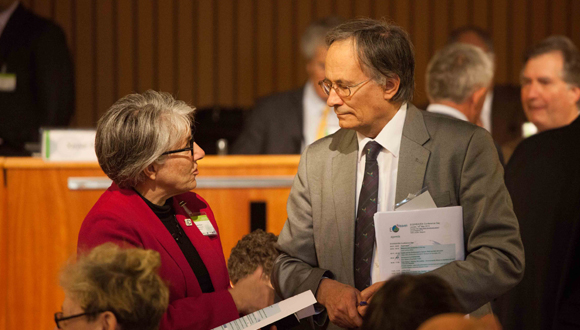
During this meeting, the commitment of the European Commission to strengthen funding in the field of earth observation in order to increase knowledge of the planet became clear, encouraging the participation of companies from the private sector and the creation of jobs within the new research program Horizon 2020.
More information:
More information about GEO-Spain:


